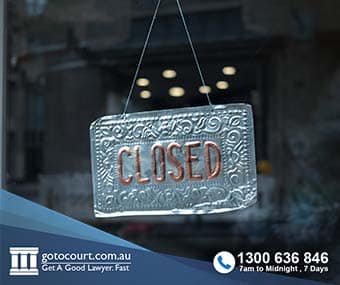Executors Duties and Obligations in Victoria (Vic)
An executor is the person appointed in a Will to manage the estate of the Testator and to carry out their wishes in accordance with the will. In the event that the testator (person making the will) appointed more than one executor, and all appointed executors are willing and able to act, those executors will act jointly in the execution of their executors duties.
Renouncing an appointment as executor
It is important to note that simply because a person is appointed as an executor, this does not mean they have an obligation to accept this appointment. In circumstances where an appointed person does not wish to act as an Executor, they may choose to renounce their appointment by signing a renunciation to this effect.
It is important to note that a person who chooses to renounce their appointment as executor must do so prior to attending to or completing any tasks in their capacity as executor. Once a person commences undertaking duties in the capacity of executor, they can no longer ‘opt out’ or choose not to accept their appointment.
If an Executor is an individual known to the Testator in a personal capacity (and not a professional capacity), they are not entitled to any payment or financial benefit arising from their role as Executor.
Executors duties
It is an Executor’s duty to ensure that they are acting in accordance with the provisions of the will and carry out their duties in the best interests of the estate, free from personal bias and conflict.
The most common responsibilities of an executor include:
- Obtaining a Grant of Probate (where required),
- Realising the assets of the estate; and
- Attending to distribution in accordance with the provisions in the will.
It important that an executor acts in accordance with the relevant state-based legislation and that they do not prematurely attend to the distribution of assets. It is advisable that an executor refrain from distribution of the estate assets until the passing of the relevant time period for a will to be contested.
There are strict time limits imposed under the legislation to bring an action to contest a will. In Victoria (as in South Australia and Western Australia), a person seeking to change a will or seek provision from an estate must commence action within six (6) months of the date of Probate being granted.
A claim may be commenced outside of the specified time frame if the claimant can satisfy the court that the estate would be otherwise be prejudiced and there are reasons for the delay. A claim must however be brought before the estate has been distributed. The ability to bring an application to contest an estate outside of the requisite time frame is considered and determined at the discretion of the relevant court.
Obligations of an Executor
In addition to the executors duties outlined above an Executor also has the following obligations:
- To carry out the wishes of the deceased as outlined in their will;
- To act in the best interests of the estate and all the will’s beneficiaries, and to not act in their own interests if those interests are not in line with those of the estate and beneficiaries;
- To manage and protect all of the assets of the estate until they are distributed to the beneficiaries;
- To ensure and be responsible for settling all the liabilities of the estate (where appropriate);
- To keep full and accurate records of the management of the estate and its distribution, and provide a summary of the financial transactions to the beneficiaries on distribution;
- To ensure that they do not act with bias towards the beneficiaries, but attempt to mediate a resolution to any conflict;
- To ensure that assets are not wasted and do not diminish in value;
- To attend to any outstanding taxation obligations of the estate,
- To ensure that money collected from the sale of assets, where not immediately distributed, is invested; and
- To carry out the above duties with care and honesty.
Breaches of executors duties
It is important that an Executor does not act in conflict with the above obligations. In the event that an Executor acts in breach of their obligations, they may be held liable.
Common examples of circumstances where an Executor may be held personally liable for a breach of their executors duties include where there is:
- Loss of an uninsured asset,
- Loss arising from unreasonable delay in administration,
- Loss arising caused to a beneficiary arising from an Executor attending to distribution in a manner that is not in keeping with the will,
- Loss arising from error or lack of diligence,
- Loss arising to a claimant as a result of the premature distribution of the estate.
It is important that an Executor also obtains advice from an accountant as to any outstanding taxation obligations of the estate prior to distribution.
If you require legal advice or representation in relation to any legal matter please contact Go To court Lawyers.






